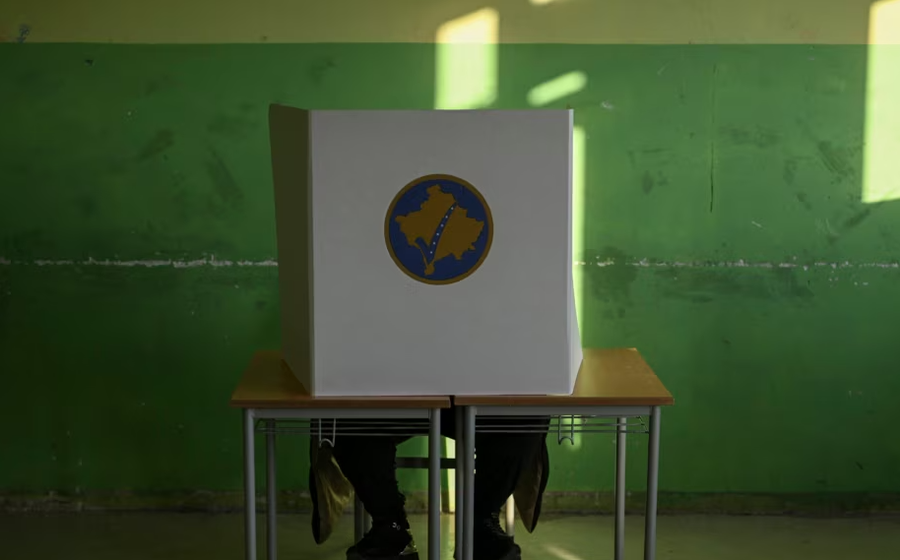
In Kosovo, at the moment, nothing is happening – and, at the same time, everything is happening. Nothing, because in the absence of a government with executive powers, many things have remained pending. And, everything, because every 48 hours that a session is held to constitute the Assembly, a new thesis emerges as to why the situation has deteriorated to this point. Are the local elections the factor behind the crisis?
On Thursdays, Radio Free Europe brings you a complete coverage of the week's hottest topic, and tells you what's worth knowing about it.
Although not all the necessary steps have yet been finalized after the parliamentary elections of February 9 - starting with the constitution of the Assembly - Kosovo has begun preparations for a new set of elections, local elections, to be held on October 12.
And, they are precisely those that are mentioned more and more often as another factor as to why political parties are stuck in their positions, and do not have the option of compromise and cooperation to unblock the impasse in the Assembly, which would pave the way for the formation of a new government.
MPs, such as Abelard Tahiri from the Democratic Party of Kosovo (PDK), Besian Mustafa from the Democratic League of Kosovo (LDK), and Time Kadrijaj from the Alliance for the Future of Kosovo (AAK), tell Radio Free Europe that such mathematics does not exist.
Eugen Cakolli from the Democratic Institute of Kosovo believes that in each electoral process, central coalitions have dictated the dynamics of cooperation at the local level, but the biggest problem now lies in the extremely tense discourse of political parties.
"The public in Kosovo has been fed in recent weeks and months by a divisive rhetoric, which sees cooperation with the other side not only as impossible, but also as wrong and useless. On the one hand, considering the parties as part of corrupt regimes, which is the rhetoric of the Vetevendosje Movement (LVV), and on the other hand, the rhetoric of other parties in relation to the LVV, that cooperation with it is with someone who has destroyed the country during the last mandate."
According to him, political entities will use the current crisis to influence their voters.
"The current race is not about who will form the institutions, but who will be blamed for the failure to elect them. Divisive rhetoric can be a card that mobilizes voters, while cooperation, unfortunately, continues to be seen as an anti-value."
Why don't PDK, LDK, and AAK cooperate with LVV?
For Tahiri, there is no calculation of votes and, according to him, PDK has extended its hand of cooperation in finding an acceptable candidate for speaker of parliament, excluding the ministers who were in the government in the previous mandate.
"The PDK has nowhere else to go, it no longer has any instrument it can use to resolve this impasse. We have offered a compromise, even though we are not the leading party and it is not our responsibility to propose the Speaker of the Assembly."
Mustafa says that LDK has clearly shown why it does not want a coalition with LVV.
"It's their language and their polarizing approach, both to society and to the political scene. It has nothing to do with local elections."
Kadrijaj claims that AAK does not want to cooperate with LVV, due to its "bad governance" in the previous mandate, and not for any other reason.
"You know that we have made proposals that have not been welcomed, and now it is their right to secure a simple majority."
On the other hand, representatives of the party that won the most votes on February 9, LVV, starting with its leader, Albin Kurti, have stated several times that they have made offers to LDK and the Social Democratic Initiative, but that they have not been materialized into an agreement.
The chairman of the Initiative, Fatmir Limaj, believes that a "final, not partial, solution" must be reached.
What could be the solution?
Pristina-based political scientist Dritëro Arifi also believes that the local elections could be a factor in why parties are hesitant to cooperate. According to him, they believe that they are showing "weakness" if they talk to the party they have been accusing until yesterday.
"Those are the red lines of wisdom and madness. Unfortunately, we have crossed the red line of political madness. So, the state has already been damaged. Of course, the responsibility lies with all 120 deputies, but the responsibility also goes according to the number of votes."
According to him, only "a grand coalition saves the country, regardless of who will be prime minister."
Kosovo held its last local elections in October 2021.
LDK won the most municipalities, followed by LVV and PDK. Most of the mayoral candidacies have already been made public./ REL (A2 Televizion)











